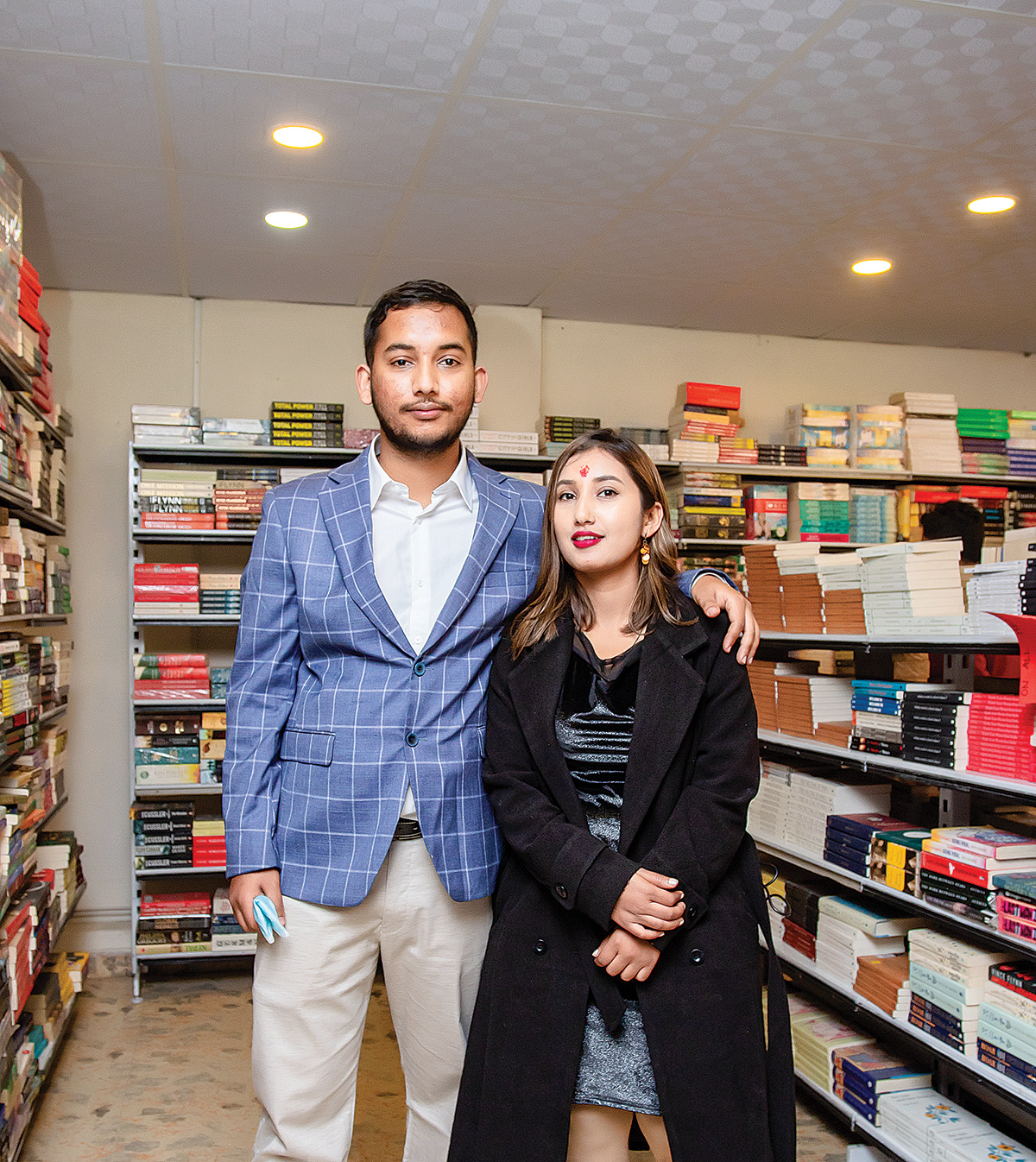
The COVID-19 pandemic has had an adverse impact on almost every sector across every country in the world. From healthcare systems to the economy the virus has spared none. With economies trying to get back on their feet, livelihoods have been severely affected with many people losing jobs.
Nepal Economic Forum conducted a survey in November 2020 and April 2021 after the government decided to lift prohibitory orders. According to the survey, industries/businesses are operating at over 60% of their capacity. In the initial survey, it was reported that industries/businesses limited their production/trade to 29% of their capacity which increased to 50.5% as of November 2020. The second follow-up survey showed that industries and businesses had increased their production/turnover to 61.4% of their capacity.
The production/turnover of all sectors was found to have increased. The food, beverage and accommodation sector accounted for the lowest recovery, with the sector’s turnover being able to reach 40.8% of its pre-lockdown numbers. Cottage, micro and small enterprises were producing at around 60% capacity, while medium and large enterprises were producing at 64.5% and 72.9% capacity respectively.
In this edition of Business 360, we asked some entrepreneurs about their views on the pandemic and what they learnt while trying to sustain their businesses during this time, what were their major challenges, and one survival lesson from the pandemic.
Suman Rayamajhi
Founder, Upaya City Cargo
 This COVID-19 pandemic and the subsequent lockdown and various restriction orders had a substantial impact on our business. Since, our customers are corporate houses, SMEs and e/socio-commerce companies, there was a drop in demand due to lockdown measures, and the operation of Upaya also correspondingly dropped to almost 50-60%.
As we are in the online delivery business, there was a silver lining for us to cater to the need for delivery of essential and medical items. However, the government was not clear about handing out passes for delivery vehicles and the operation modality. Further, every day there was a new rule and modality which created confusion at the traffic level, thus we and our driver partners were held up at various junctions by the traffic police despite the fact that the goods delivered fell under the essential category.
What came as a further surprise was even home delivery service which was the best means adopted by all the countries to avoid crowds for day-to-day groceries, vegetables and daily needs was restricted by the government until being challenged at the Supreme Court. Despite these challenges, Upaya City Cargo focused on finding ways to contribute to society at this time of need. We were able to deliver 2,000+ cylinders during the second lockdown to needy patients. This approach created though not money but brand awareness together with a sense of duty as a good citizen among the team members.
This COVID-19 pandemic and the subsequent lockdown and various restriction orders had a substantial impact on our business. Since, our customers are corporate houses, SMEs and e/socio-commerce companies, there was a drop in demand due to lockdown measures, and the operation of Upaya also correspondingly dropped to almost 50-60%.
As we are in the online delivery business, there was a silver lining for us to cater to the need for delivery of essential and medical items. However, the government was not clear about handing out passes for delivery vehicles and the operation modality. Further, every day there was a new rule and modality which created confusion at the traffic level, thus we and our driver partners were held up at various junctions by the traffic police despite the fact that the goods delivered fell under the essential category.
What came as a further surprise was even home delivery service which was the best means adopted by all the countries to avoid crowds for day-to-day groceries, vegetables and daily needs was restricted by the government until being challenged at the Supreme Court. Despite these challenges, Upaya City Cargo focused on finding ways to contribute to society at this time of need. We were able to deliver 2,000+ cylinders during the second lockdown to needy patients. This approach created though not money but brand awareness together with a sense of duty as a good citizen among the team members.
 Our bookstore, Books Mandala, has been in operation since 1991 and we started our online operations in 2019. Having just had a seismic shift in the business model by embracing e-commerce through ‘booksmandala.com’, survival during the pandemic was not impossible for our business. If anything, the business worked better than we had anticipated, because nobody had anticipated a pandemic. Although we had started doing online deliveries to most places in Nepal and internationally, our business was predominantly based in Pokhara and largely dependent on tourism. As the lockdown started, we were able to put our focus on catering to locals via e-commerce and were able to help people discover and rediscover their love of reading.
Our bookstore, Books Mandala, has been in operation since 1991 and we started our online operations in 2019. Having just had a seismic shift in the business model by embracing e-commerce through ‘booksmandala.com’, survival during the pandemic was not impossible for our business. If anything, the business worked better than we had anticipated, because nobody had anticipated a pandemic. Although we had started doing online deliveries to most places in Nepal and internationally, our business was predominantly based in Pokhara and largely dependent on tourism. As the lockdown started, we were able to put our focus on catering to locals via e-commerce and were able to help people discover and rediscover their love of reading.
 The initial days of the pandemic were bleak. However, even during those times, Kheti was the first on the street. It was hot, the roads were empty, and we had to encounter countless police blockades. While the fear within the team was real, we had one thought that pushed us. It was the need of that time to support our farmers and deliver their produce to needy households. We did not know how long it would last nor did we know the countless regulations the government would time and again feed us with to disrupt the process. But we kept going through the process of connecting farmers with consumers when the fear of self-contamination was high.
Going down memory lane of the days during the first phase of the pandemic still gives us chills. Our organisation relentlessly worked throughout and delivered to our business core of fulfilling needs both of farmers and consumers. Almost 70% of our team members were working from home. There is a saying that with every problem comes an opportunity and as an agriculture supply chain company, it was a real opportunity for us. We were high in all terms - be it digital presence, daily orders and revenue - but the cost of operations was extremely high.
The initial days of the pandemic were bleak. However, even during those times, Kheti was the first on the street. It was hot, the roads were empty, and we had to encounter countless police blockades. While the fear within the team was real, we had one thought that pushed us. It was the need of that time to support our farmers and deliver their produce to needy households. We did not know how long it would last nor did we know the countless regulations the government would time and again feed us with to disrupt the process. But we kept going through the process of connecting farmers with consumers when the fear of self-contamination was high.
Going down memory lane of the days during the first phase of the pandemic still gives us chills. Our organisation relentlessly worked throughout and delivered to our business core of fulfilling needs both of farmers and consumers. Almost 70% of our team members were working from home. There is a saying that with every problem comes an opportunity and as an agriculture supply chain company, it was a real opportunity for us. We were high in all terms - be it digital presence, daily orders and revenue - but the cost of operations was extremely high.
 Like most other businesses, we struggled a lot. Due to the lockdown, our store was completely closed so we were unable to make sales physically. The e-commerce sector for electronic consumerables is not particularly booming in the context of Nepal, yet we had a modest presence in the online market. But since delivery services were considered unsafe and we did not fall into the essential goods category, we couldn’t cater to all the orders we received.
We ourselves had placed a big order at that time. But due to flight restrictions and shortage of products, we couldn’t get the products on time. And a big part of our investment froze. As delivery stalled due to flight restrictions, it took us a while to get our hands on those products. And when we got them, some products were not in trend, some were outdated, and newer generations replaced most others. Getting these stocks cleared was a tough nut to crack. No sale, no online delivery, frozen investment, and other expenses piling up, it was a huge blow.
Like most other businesses, we struggled a lot. Due to the lockdown, our store was completely closed so we were unable to make sales physically. The e-commerce sector for electronic consumerables is not particularly booming in the context of Nepal, yet we had a modest presence in the online market. But since delivery services were considered unsafe and we did not fall into the essential goods category, we couldn’t cater to all the orders we received.
We ourselves had placed a big order at that time. But due to flight restrictions and shortage of products, we couldn’t get the products on time. And a big part of our investment froze. As delivery stalled due to flight restrictions, it took us a while to get our hands on those products. And when we got them, some products were not in trend, some were outdated, and newer generations replaced most others. Getting these stocks cleared was a tough nut to crack. No sale, no online delivery, frozen investment, and other expenses piling up, it was a huge blow.
 This COVID-19 pandemic and the subsequent lockdown and various restriction orders had a substantial impact on our business. Since, our customers are corporate houses, SMEs and e/socio-commerce companies, there was a drop in demand due to lockdown measures, and the operation of Upaya also correspondingly dropped to almost 50-60%.
As we are in the online delivery business, there was a silver lining for us to cater to the need for delivery of essential and medical items. However, the government was not clear about handing out passes for delivery vehicles and the operation modality. Further, every day there was a new rule and modality which created confusion at the traffic level, thus we and our driver partners were held up at various junctions by the traffic police despite the fact that the goods delivered fell under the essential category.
What came as a further surprise was even home delivery service which was the best means adopted by all the countries to avoid crowds for day-to-day groceries, vegetables and daily needs was restricted by the government until being challenged at the Supreme Court. Despite these challenges, Upaya City Cargo focused on finding ways to contribute to society at this time of need. We were able to deliver 2,000+ cylinders during the second lockdown to needy patients. This approach created though not money but brand awareness together with a sense of duty as a good citizen among the team members.
This COVID-19 pandemic and the subsequent lockdown and various restriction orders had a substantial impact on our business. Since, our customers are corporate houses, SMEs and e/socio-commerce companies, there was a drop in demand due to lockdown measures, and the operation of Upaya also correspondingly dropped to almost 50-60%.
As we are in the online delivery business, there was a silver lining for us to cater to the need for delivery of essential and medical items. However, the government was not clear about handing out passes for delivery vehicles and the operation modality. Further, every day there was a new rule and modality which created confusion at the traffic level, thus we and our driver partners were held up at various junctions by the traffic police despite the fact that the goods delivered fell under the essential category.
What came as a further surprise was even home delivery service which was the best means adopted by all the countries to avoid crowds for day-to-day groceries, vegetables and daily needs was restricted by the government until being challenged at the Supreme Court. Despite these challenges, Upaya City Cargo focused on finding ways to contribute to society at this time of need. We were able to deliver 2,000+ cylinders during the second lockdown to needy patients. This approach created though not money but brand awareness together with a sense of duty as a good citizen among the team members.
Upaya City Cargo like any tech startup has staff salary as the biggest cost component and voluntary reduction of this cost from the team itself was a big boost for our survival. Now, we are still together and growing and the company is acknowledging and compensating back all the staff who sacrificed during the lockdown period to keep our heads above the water.The important survival lesson from the pandemic for us was uniting and keeping the team together. We must accept finite disappointment but we must never lose infinite hope - said Martin Luther King; we followed the same principle. We knew there is nothing wrong with our team, our planning, our business model, and we also knew that the environment was temporary. This belief among each and every team member helped us to stick together. Not only that, most of the staff volunteered to contribute by taking cuts in their salary and those who were financially comfortable even agreed to defer their payslip for a couple of months, as a result, those in need were adequately paid. With this team united and working from home, we were able to streamline our system, platform and processes. Upaya City Cargo like any tech startup has staff salary as the biggest cost component and voluntary reduction of this cost from the team itself was a big boost for our survival. Now, we are still together and growing and the company is acknowledging and compensating back all the staff who sacrificed during the lockdown period to keep our heads above the water. Saurab Sharma and Pratima Sharma Co-founders, Books Mandala
 Our bookstore, Books Mandala, has been in operation since 1991 and we started our online operations in 2019. Having just had a seismic shift in the business model by embracing e-commerce through ‘booksmandala.com’, survival during the pandemic was not impossible for our business. If anything, the business worked better than we had anticipated, because nobody had anticipated a pandemic. Although we had started doing online deliveries to most places in Nepal and internationally, our business was predominantly based in Pokhara and largely dependent on tourism. As the lockdown started, we were able to put our focus on catering to locals via e-commerce and were able to help people discover and rediscover their love of reading.
Our bookstore, Books Mandala, has been in operation since 1991 and we started our online operations in 2019. Having just had a seismic shift in the business model by embracing e-commerce through ‘booksmandala.com’, survival during the pandemic was not impossible for our business. If anything, the business worked better than we had anticipated, because nobody had anticipated a pandemic. Although we had started doing online deliveries to most places in Nepal and internationally, our business was predominantly based in Pokhara and largely dependent on tourism. As the lockdown started, we were able to put our focus on catering to locals via e-commerce and were able to help people discover and rediscover their love of reading.
The pandemic taught us a lot of lessons but to be prepared for the unexpected and to be patient was the biggest takeaway.The lockdown encouraged many people to escape into books and it felt like a noble activity being able to provide some comfort during these troubling times. The boom in sales also encouraged us to open up a physical store in Kathmandu, turning out to be a milestone in the history of the business. One of the major challenges during the lockdown was movement restriction, being unable to procure books from our international distributors, and unclear rules and regulations for online deliveries by the government. The pandemic taught us a lot of lessons but to be prepared for the unexpected and to be patient was the biggest takeaway. Neuraj Karki, Subash Bhattarai, Tulsi Giri, Debesh L Pradhan Co-founders, Kheti
 The initial days of the pandemic were bleak. However, even during those times, Kheti was the first on the street. It was hot, the roads were empty, and we had to encounter countless police blockades. While the fear within the team was real, we had one thought that pushed us. It was the need of that time to support our farmers and deliver their produce to needy households. We did not know how long it would last nor did we know the countless regulations the government would time and again feed us with to disrupt the process. But we kept going through the process of connecting farmers with consumers when the fear of self-contamination was high.
Going down memory lane of the days during the first phase of the pandemic still gives us chills. Our organisation relentlessly worked throughout and delivered to our business core of fulfilling needs both of farmers and consumers. Almost 70% of our team members were working from home. There is a saying that with every problem comes an opportunity and as an agriculture supply chain company, it was a real opportunity for us. We were high in all terms - be it digital presence, daily orders and revenue - but the cost of operations was extremely high.
The initial days of the pandemic were bleak. However, even during those times, Kheti was the first on the street. It was hot, the roads were empty, and we had to encounter countless police blockades. While the fear within the team was real, we had one thought that pushed us. It was the need of that time to support our farmers and deliver their produce to needy households. We did not know how long it would last nor did we know the countless regulations the government would time and again feed us with to disrupt the process. But we kept going through the process of connecting farmers with consumers when the fear of self-contamination was high.
Going down memory lane of the days during the first phase of the pandemic still gives us chills. Our organisation relentlessly worked throughout and delivered to our business core of fulfilling needs both of farmers and consumers. Almost 70% of our team members were working from home. There is a saying that with every problem comes an opportunity and as an agriculture supply chain company, it was a real opportunity for us. We were high in all terms - be it digital presence, daily orders and revenue - but the cost of operations was extremely high.
The pandemic hit us hard but it made us stronger, taught us how to fight an organisational crisis together. One core lesson in the process is a life lesson: ‘Every Cloud has a Silver Lining’; we just have to look for it.One good aspect is that we have seen a massive rise in awareness in the agriculture supply chain companies in Nepal. A lot of companies working on a similar business model have mushroomed in the process supporting consumers along the way. We, on the other hand, had a different approach. We lobbied our business process through farmers. Being able to support the farmers produce during a crisis means we have a mutual trust now. We have also remodelled our business in such a way to support other smaller businesses which were not allowed to operate during the crisis like bakeries, homemade chocolates, small gardening tools, vegan food, pickles, etc. This enhanced our mutual collaboration in the market. The pandemic hit us hard but it made us stronger, taught us how to fight an organisational crisis together. One core lesson in the process is a life lesson: ‘Every Cloud has a Silver Lining’; we just have to look for it. Subash Gajurel Founder, ITTI
 Like most other businesses, we struggled a lot. Due to the lockdown, our store was completely closed so we were unable to make sales physically. The e-commerce sector for electronic consumerables is not particularly booming in the context of Nepal, yet we had a modest presence in the online market. But since delivery services were considered unsafe and we did not fall into the essential goods category, we couldn’t cater to all the orders we received.
We ourselves had placed a big order at that time. But due to flight restrictions and shortage of products, we couldn’t get the products on time. And a big part of our investment froze. As delivery stalled due to flight restrictions, it took us a while to get our hands on those products. And when we got them, some products were not in trend, some were outdated, and newer generations replaced most others. Getting these stocks cleared was a tough nut to crack. No sale, no online delivery, frozen investment, and other expenses piling up, it was a huge blow.
Like most other businesses, we struggled a lot. Due to the lockdown, our store was completely closed so we were unable to make sales physically. The e-commerce sector for electronic consumerables is not particularly booming in the context of Nepal, yet we had a modest presence in the online market. But since delivery services were considered unsafe and we did not fall into the essential goods category, we couldn’t cater to all the orders we received.
We ourselves had placed a big order at that time. But due to flight restrictions and shortage of products, we couldn’t get the products on time. And a big part of our investment froze. As delivery stalled due to flight restrictions, it took us a while to get our hands on those products. And when we got them, some products were not in trend, some were outdated, and newer generations replaced most others. Getting these stocks cleared was a tough nut to crack. No sale, no online delivery, frozen investment, and other expenses piling up, it was a huge blow.
The lesson we learnt from the lockdown was to have a bigger online presence and slowly change retail outlet business to e-commerce so that we don’t have to depend on walk-in customers only.On the bright side, online classes and work-from-home started to become the norm and the demand for laptops and PCs rose unexpectedly. It was a consolation but due to the high demand for laptops, PCs and computer accessories globally, there was a global shortage and price hike. That too impacted our business quite severely. But we channelled that adversity into opportunity and focused on clearing old stocks when the lockdown was lifted. The lesson we learnt from the lockdown was to have a bigger online presence and slowly change retail outlet business to e-commerce so that we don’t have to depend on walk-in customers only, and this way our customers across Nepal can benefit from our services. READ ALSO:
Published Date: November 15, 2021, 12:00 am
Post Comment
E-Magazine
RELATED Opinion





